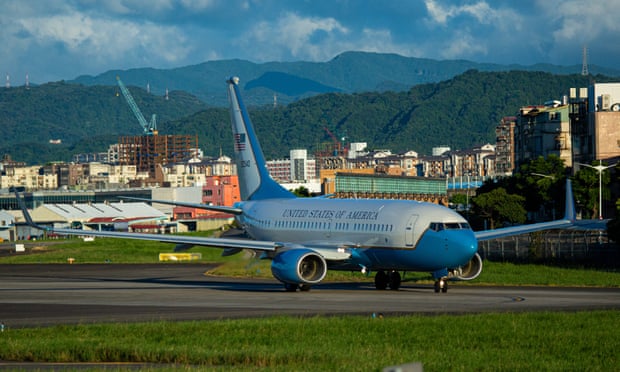Now Rather Than a Nuclear Umbrella, It’s a Dollar Umbrella: US Treasury Secretary Becomes ‘Secretary of War’
U.S. Treasury Secretary Janet Yellen, who visited South Korea on Wednesday, made her first move at LG Chem. It is a key player in the global secondary battery market. Her counterpart in South Korea, Deputy Prime Minister and Minister of Economy and Finance Choo Kyung-ho, had a secret talk with the governor of the Bank of Korea before the visit and also met with President Yoon Suk-yeol. LG Chem emphasized “friend-shoring” among the allies; President Yoon confirmed his commitment to an economic and financial security alliance between South Korea and the U.S. Choo promised to join in on the price cap on Russian oil.
Friend-shoring is the concept of establishing a stable supply chain system among allies. Yellen accused China of introducing an irrational market order, implying that Korea's industrial production structure should move away from China and closer to the United States. The crude oil price cap is a measure to prevent Russia from financing a huge war by exporting high-value crude oil. Yellen returned with a promise from Korea to participate in friend-shoring and implement crude oil price cap.
Foreign affairs in the United States are under the jurisdiction of the secretary of state. It is unusual for the secretary of the treasury to take diplomatic steps. Yellen reportedly began making strong demands of Asian countries to accept the price cap on Russian crude oil prices beginning July 12, when she visited the continent to attend the Group of 20 finance ministers’ meeting.. With the exception of Japan, the U.S. dollar is the leverage the U.S. can use against Russia and other Asian countries that are “difficult to beat” otherwise.
Ahead of Yellen's obvious purpose to visit, South Korea was expecting a currency swap between South Korea and the United States. The strong dollar has led to foreign capital outflows, with the value of the won plunging as the trade balance deteriorates due to rising international raw material prices. The devaluation is comparable to the euro, which has been directly affected by the Russian-Ukrainian war. Although there are foreign exchange reserves, the currency swap with the U.S., which is a dollar-printing country, is significant as a safeguard to the market.
Yellen left without promising a currency swap. At the meeting with Choo, she only nodded to our proposal to discuss future trends in the financial and foreign exchange markets and cooperation measures. Strictly speaking, the Korea-U.S. currency swap is a contract between the central bank and the Federal Reserve. It is not in the remit of the secretary of the treasury. However, the dollar bills are signed by the secretary of the treasury. Yellen also served as the chair of the Fed and has worked with Jerome Powell, the incumbent chair. Even if there wasn't a “promise,” it was possible to “sympathize” with the necessity. Now, whether South Korea fulfills its commitments or not is likely to influence future moves.
Politics has become the economy. The economy is politics. Political instability in emerging economies is serious due to soaring prices and concerns over the foreign exchange crisis. The confrontation between the West and Russia, and between the United States and China, is getting sharper by the day. With crude oil in its hands, the Middle East is trying to take a third path. It is an unprecedented crossroads for South Korea, which has an economic structure that feeds on trade. Beyond whether the stock market rebounds, how well Korean companies adapt to the new international order has become more important.
Since ancient times, Chinese champions have organized leagues to gather powerful princes to show off their skills and organize a new order. Princes who did not follow were punished in the name of the lord. In fact, international conferences led by the United States, such as the Group of Seven and NATO summits, are also a kind of “league.” These days, Chinese President Xi Jinping is busy with internal affairs. After securing a position at the 20th National Congress of the Chinese Communist Party in October, it seems that he will take care of external affairs. The invitation to European leaders to visit Beijing in November is a sign of that. It happens to be around the midterm elections in the United States and is expected to put at the forefront the disadvantages countries may face by being on the U.S. side alone. The pressure on South Korea is also expected to intensify from this point on. It's time to prepare for a new economic war this fall, in which China counterattacks the United States.

